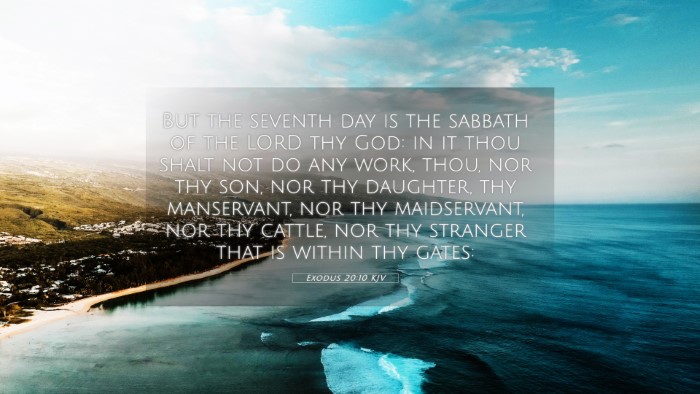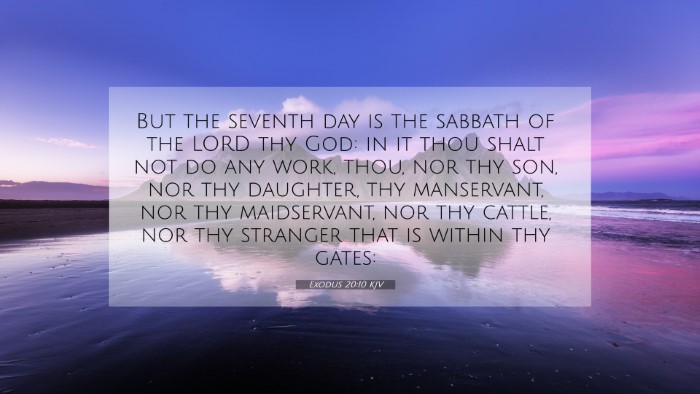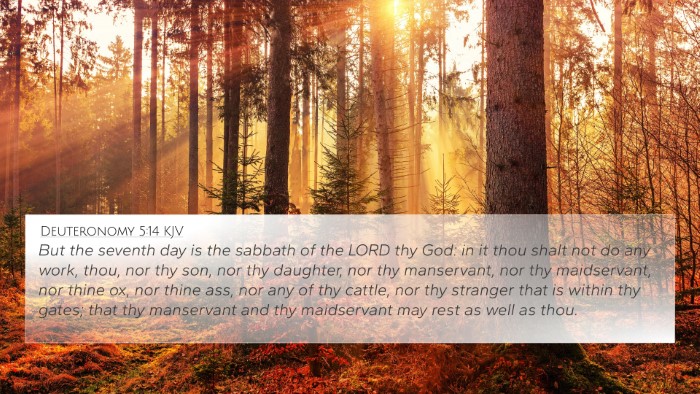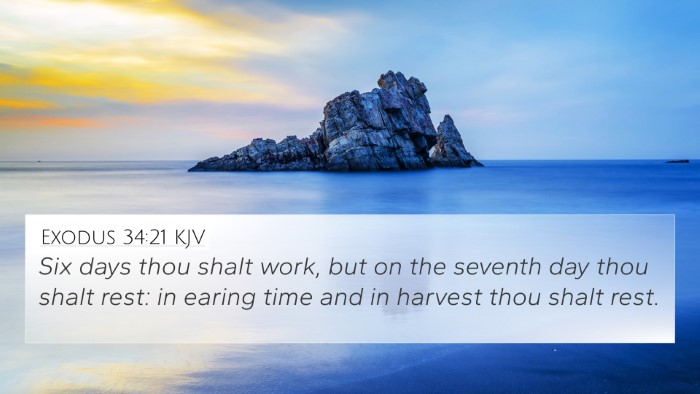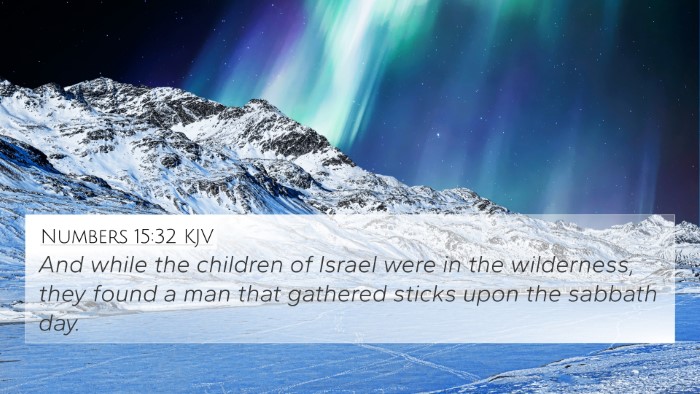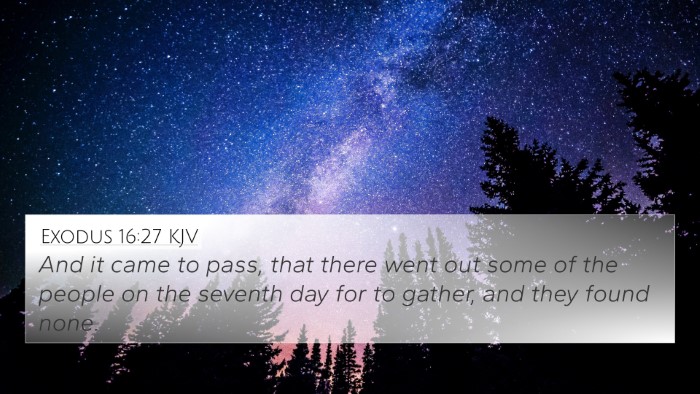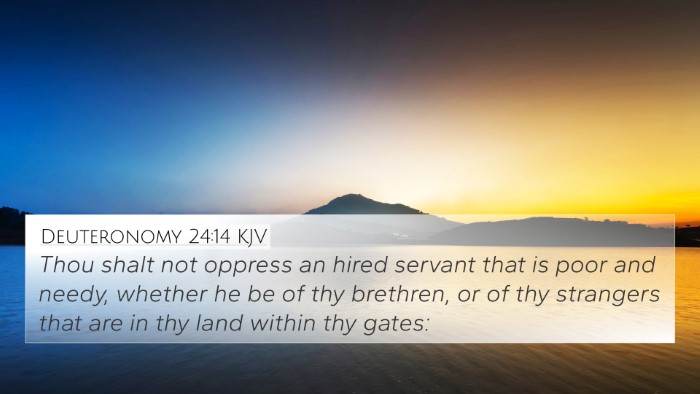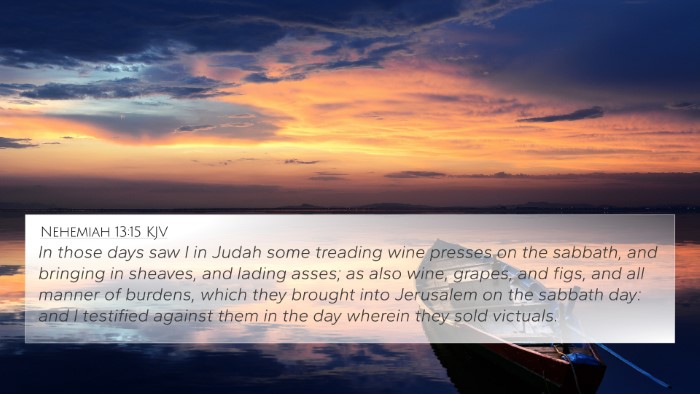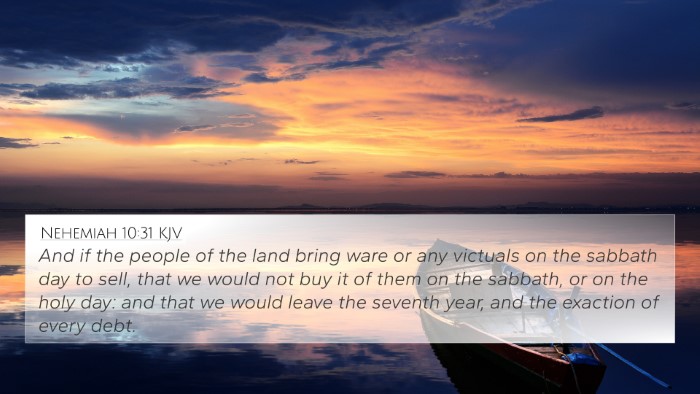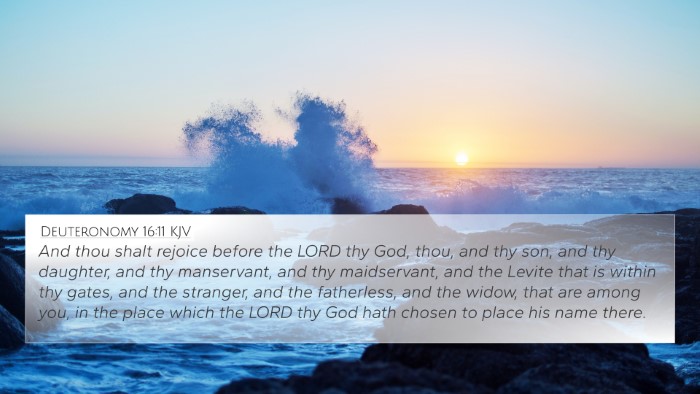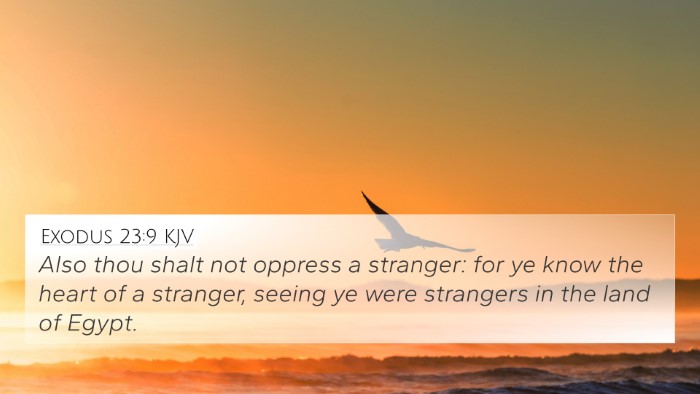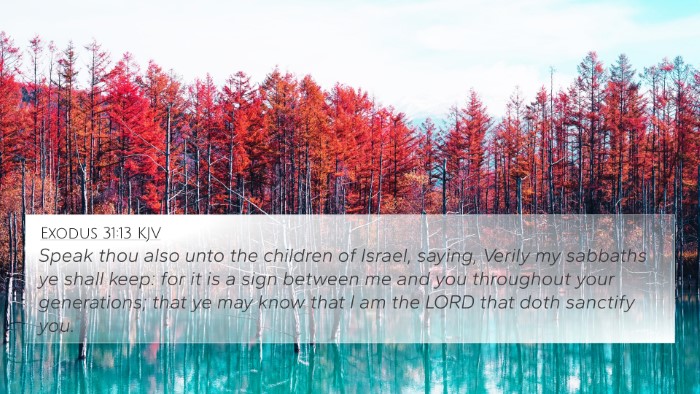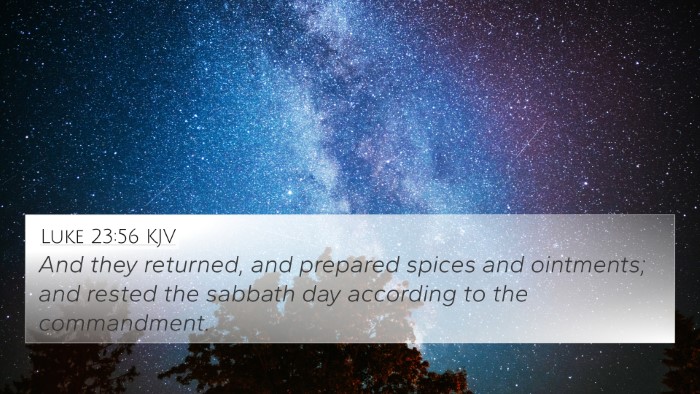Exodus 20:10 - Interpretation and Meaning
Exodus 20:10 states, "But the seventh day is the sabbath of the Lord thy God: in it thou shalt not do any work, thou, nor thy son, nor thy daughter, thy manservant, nor thy maidservant, nor thy cattle, nor thy stranger that is within thy gates."
This verse is part of the Ten Commandments and emphasizes the sanctity of the Sabbath, which is a day set aside for rest and worship. The meaning of this verse can be explored through various public domain commentaries.
Summary of Key Insights
- Matthew Henry's Commentary:
Henry highlights that the Sabbath is not merely a day of rest but a day dedicated to God. It serves as a reminder of God's creation and His rest on the seventh day. The command is comprehensive—it encompasses everyone and everything within the household, reinforcing the communal aspect of worship and rest.
- Albert Barnes’ Notes on the Bible:
Barnes notes that the Sabbath is a distinctive feature of the Israelite religion, setting apart the Israelites from other nations. He emphasizes the need for rest as a divine ordinance, pointing out that even the animals are to observe this day. It reflects God's grace and care for all of creation.
- Adam Clarke’s Commentary:
Clarke elaborates on the implications of resting on the Sabbath. He discusses its basis in the creation account in Genesis. Observing the Sabbath fosters a deeper relationship with God, allowing believers to reflect on divine creation and redemption. Clarke also emphasizes that this day should be revered, setting it apart from other days as sacred.
Thematic Bible Verse Connections
This verse finds numerous connections in the scriptures, establishing its thematic significance throughout the Bible. Below are key cross-references that illustrate its importance:
- Genesis 2:2-3: Details God's rest on the seventh day after creation, forming the basis for the Sabbath.
- Exodus 31:15: Reiterates the importance of keeping the Sabbath holy and the consequences of not observing it.
- Deuteronomy 5:14: A restatement of the commandment, emphasizing the liberation from slavery as a reason for rest.
- Isaiah 58:13-14: Discusses the joy and blessing that comes from honoring the Sabbath, connecting rest with spiritual fulfillment.
- Mark 2:27: Jesus teaches that the Sabbath was made for man, not man for the Sabbath, highlighting its intended benefit.
- Hebrews 4:9-10: Encourages believers to enter into God’s rest, relating the Sabbath to a deeper spiritual rest in Christ.
- Colossians 2:16-17: Discusses the shadow of things to come, illustrating how Christ fulfills the Sabbath.
Cross-Referencing Biblical Texts
Understanding the connections between different Bible verses can enhance one's comprehension of God’s intentions behind the Sabbath command. Tools for bible cross-referencing can facilitate a deeper study, including:
- Bible Concordance: Use this tool to find keywords and themes related to the Sabbath.
- Bible Cross-Reference Guide: A resource to explore related verses across both the Old and New Testament.
- Bible Reference Resources: Comprehensive materials that aid in exploring the thematic connections and deeper meanings of verses.
Understanding Through Comparative Analysis
By engaging in comparative Bible verse analysis, readers can uncover layers of meaning associated with the Sabbath observance. Consider how:
- Links between the Prophets and Apostolic teachings: The consistent call to observe God's commands underscores the unity of scripture.
- Cross-referencing Psalms with New Testament teachings: Psalms often reflect themes of rest, worship, and God’s sovereignty that connect with the teachings of Jesus.
- How to use Bible cross-references effectively: Approach the study with an intention to see how one verse illuminates another, creating a richer understanding of Bible themes.
Conclusion
Exodus 20:10 offers profound insights into the nature of God’s rest and his expectations of us as His followers. Through careful study of cross-references and comparative analysis, believers can appreciate the Sabbath's foundational role in the spiritual life and its connections throughout the Bible. This Sabbath command is not merely a legalistic requirement but a divine invitation to experience rest and restoration.

